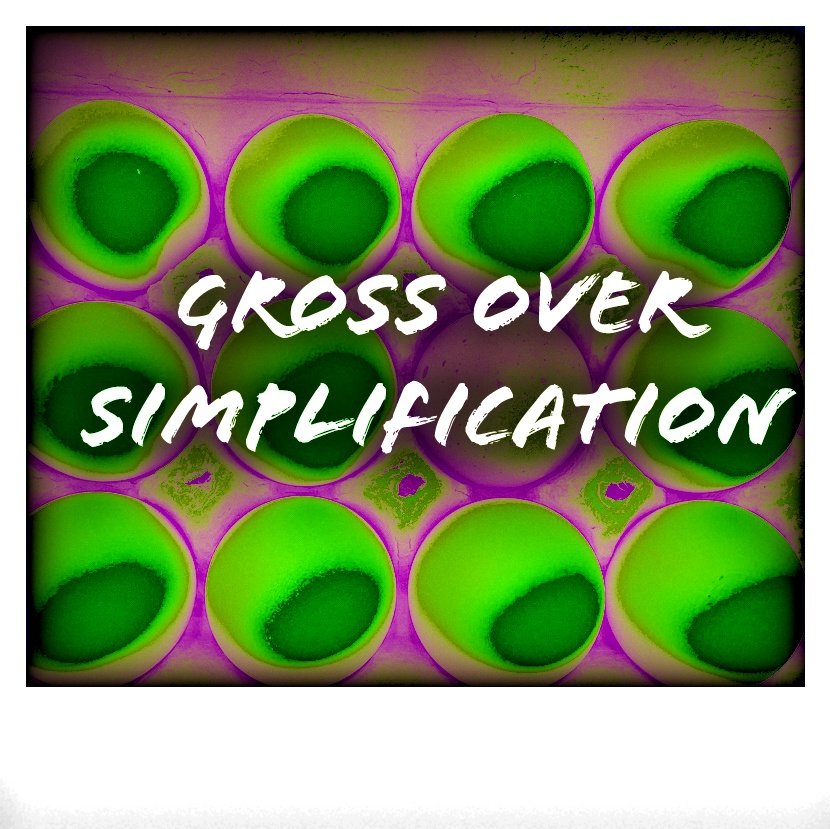Welcome to the podcast – The Populists Playbook.
- If you are concerned about the state of politics in the modern world
- If feel like roughly half of voters have taken leave of their senses
- If you want to be better informed about the propaganda that is being used to try and manipulate you – then I hope you will find this interesting, you should find it concerning.
We see it close to home, we see it on the news. Across every social media channel, in liberal democracies, in totalitarian states. The 21st century has become a golden age for demagogues, for nationalists, for populists.
They might be left-wing or right-wing. They might be American, Italian, Scottish, African, English or Korean. They might be in the present day or even two thousand years in the past, but the propaganda techniques populists use are well understood – so why are they still so effective?
In this series, we explore the 12 most common tactics of populists. Using examples from history, and current affairs, we discover what the techniques are, how to spot them, why they use them and how to counter them.
I’m making this series with a specific purpose.
If more of us know the tactics, if more of us recognise the tactics, then more of us can resist the tactics. We can move politics closer to rational leadership, debate and consensual progress.
I was talking with a friend, who is politically aware and also listens to a lot of podcasts, about planning this podcast about Populists, and Nationalists and Demagogues and like most people she kind of had an idea of what I was getting at, but wanted some exact definitions of who I meant. I think that’s a great place to start.
Bingo Demagogue
What’s a populist, and why have they got a playbook?
Terms are fluid, and definitions can be imprecise, but imagine a three-circle Venn diagram of populists, nationalists and demagogues. The propaganda tactics are where they overlap in their attempts to manipulate you and voters.
Populists
Populists seek power through a political style that pits “the People” against the “Elite”. They differ in the definitions they choose for either.
The people / elite split may be religious. Anti-Semitic populism whips up the mob against the idea of a global Jewish elite. White supremacist populism stirs the crowd with Islamaphobia. Or they may be split along class: appealing to the workers to smash the landlord class, or racial or other political lines – the downtrodden Scot against a Westminster elite. The forgotten British working class against a liberal London elite.
Populists may be of the left or right, railing against an elite that they say puts the rights of institutions above the ‘voice of the people’. When populists gain power in liberal democracies, they tend to “democratic erosion” the rolling back of democratic accountability. Usually by undermining independent institutions like the media or law courts which they propose are hostile to the “will of the people”. Often reformation is to the profit of the new elite.
Demagogues
The Oxford English Dictionary definition of Demagogue is
“A leader of a popular faction, or of the mob; a political agitator who appeals to the passions and prejudices of the mob to obtain power or further his own interests. An unprincipled or factious popular orator.”
The Oxford English Dictionary
The word comes from the Greek for “Leader of the People”, if the populists are the movement, then the Demagogue is the charismatic focus. Populism may be by committee, demagogues are individuals with followers. When you hear populist movements being criticised as having a cult-like’ following, the Demagogue is the ‘dear leader’ of the cult.
A demagogue is one person, who might be a divisive character, they tend to be charismatic in person, though they can be political marmite – people love them or hate them.
Nationalism
“Identification with one’s own nation and support for its interests, especially to the exclusion or detriment of the interests of other nations.”
Nationalism wears many masks – and does not always coincide with modern political borders. There is open racist nationalism – for example, based on Aryan supremacy. The supposedly kinder ‘civic nationalism’ claims not to have a racial basis. Still, it is based on conforming to an idealised single shared national identity or social outlook. The language of nationalism is to define the nation in “Them and us” terms,. They then put “us” first.
- America First.

- Scotland First.

- Any country first!
It’s a peculiar characteristic of nationalism that it can be easier to recognise from far away. Each nationalism thinks itself unique. And to be clear here – there is, very definitely distinction can be drawn between Nationalism and Patriotism.
“Patriotism is of its nature defensive… Nationalism, on the other hand, is inseparable from the desire for power.” –
George Orwell, Notes on Nationalism.
Format
The format of the podcast is going to be twelve episodes, one on each of 12 propaganda techniques that are most closely associated with populists, nationalists and demagogues. We will compare some examples, look at what was done and why – and I hope also we can build out some strategies for countering these techniques when you find them in the wild.
So a quick look at the twelve tactics –
 Promising the Impossible – Making promises that they won’t be able to keep – ranging from the virtually impossible to the *literally* impossible.
Promising the Impossible – Making promises that they won’t be able to keep – ranging from the virtually impossible to the *literally* impossible.  Attacking the Media – From denouncing critical coverage as ‘Fake News’ or “Biased Mainstream Media”, and censorship, to attached on journalists ranging from trying to get them fired to literally jailing, assaulting and killing them. This technique is especially insidious at skewing peoples perception of reality online.
Attacking the Media – From denouncing critical coverage as ‘Fake News’ or “Biased Mainstream Media”, and censorship, to attached on journalists ranging from trying to get them fired to literally jailing, assaulting and killing them. This technique is especially insidious at skewing peoples perception of reality online.  Accusing Opponents of Weakness – This is very interesting. Often this is holding up a mirror – the populists will accuse their opponents of weaknesses that they themselves are trying to hide.
Accusing Opponents of Weakness – This is very interesting. Often this is holding up a mirror – the populists will accuse their opponents of weaknesses that they themselves are trying to hide.  Vulgarity and Outrageous Behaviour – We will be spoiled for choice here, whether it’s mocking a disabled reporter, politically gatecrashing a sporting event with a flag, or deliberately breaking the rules of a parliament chamber.
Vulgarity and Outrageous Behaviour – We will be spoiled for choice here, whether it’s mocking a disabled reporter, politically gatecrashing a sporting event with a flag, or deliberately breaking the rules of a parliament chamber.  Personal insults and Ridicule – Name calling, This is “ad hominem’, it’s playing the man and not the ball – shooting the messenger – when you don’t want to argue against your opponents points, you attack and ridicule them to draw away from the logic of the argument. It can be done against an individual or a group.
Personal insults and Ridicule – Name calling, This is “ad hominem’, it’s playing the man and not the ball – shooting the messenger – when you don’t want to argue against your opponents points, you attack and ridicule them to draw away from the logic of the argument. It can be done against an individual or a group.  Gross Oversimplification – The art of reducing a complex socio-economic issue with great uncertainties into a three word chant that can fit in a tweet. If it takes nuance and complexity to argue against it or rebut it, then it can take a secure place in voter psyche.
Gross Oversimplification – The art of reducing a complex socio-economic issue with great uncertainties into a three word chant that can fit in a tweet. If it takes nuance and complexity to argue against it or rebut it, then it can take a secure place in voter psyche.  Scapegoating – the blame game, if you can make it someone elses fault then – one you absolve yourself and your follower of responsibility, and two – you can unite people behind you against the enemy – whether or not the threat is real. This is a powerful technique and one of the most harmful.
Scapegoating – the blame game, if you can make it someone elses fault then – one you absolve yourself and your follower of responsibility, and two – you can unite people behind you against the enemy – whether or not the threat is real. This is a powerful technique and one of the most harmful.  Fear-Mongering – The threat of terrible future things if a course of action is or isn’t taken. Often exaggerated or imagined, but put forth with strong imagery. It’s literally designed to being out an evolutionary emotional response – fear. When people are scared they don’t make good or rational decisions.
Fear-Mongering – The threat of terrible future things if a course of action is or isn’t taken. Often exaggerated or imagined, but put forth with strong imagery. It’s literally designed to being out an evolutionary emotional response – fear. When people are scared they don’t make good or rational decisions.  Emotional Oratory – I don’t want to mention Hitler, I *really* don’t want to mention Hitler. Thanks to Godwin’s law by the time you compare someone to Hitler you’ve lost the argument. But you get the idea – rallies, speeches that stir the heart, arguments stronger on Pathos than Logos or Ethos. I’m going to try and do the episode on emotional oratory without mentioning Hitler.
Emotional Oratory – I don’t want to mention Hitler, I *really* don’t want to mention Hitler. Thanks to Godwin’s law by the time you compare someone to Hitler you’ve lost the argument. But you get the idea – rallies, speeches that stir the heart, arguments stronger on Pathos than Logos or Ethos. I’m going to try and do the episode on emotional oratory without mentioning Hitler.  Folksy man of the people posturing – This is the positioning against an elite. If you see someone who is actually a millionaire banker making sure they are photographed down the pub smoking a fag and drinking a pint, or a millionaire landlord politician claiming to be a ‘simple crofter’, or a billionaire property developer who lives of fast food and wears a baseball cap… you know, that last one might just genuinely be his personality, but we will get into it on that episode.
Folksy man of the people posturing – This is the positioning against an elite. If you see someone who is actually a millionaire banker making sure they are photographed down the pub smoking a fag and drinking a pint, or a millionaire landlord politician claiming to be a ‘simple crofter’, or a billionaire property developer who lives of fast food and wears a baseball cap… you know, that last one might just genuinely be his personality, but we will get into it on that episode.  Threats of violence and intimidation – Horrible, but it can be effective. Often this can be done with ‘dog-whistling’ – the threat might be explicit, or it might be a hint to followers further down the chain, or it might simply be turning a blind eye.
Threats of violence and intimidation – Horrible, but it can be effective. Often this can be done with ‘dog-whistling’ – the threat might be explicit, or it might be a hint to followers further down the chain, or it might simply be turning a blind eye.  Lying – There’s a case to be made that all politicians lie, and that all the other techniques involve lying, but some lies are bigger and bolder than others. This episode may turn into a bit of a greatest hits.
Lying – There’s a case to be made that all politicians lie, and that all the other techniques involve lying, but some lies are bigger and bolder than others. This episode may turn into a bit of a greatest hits.
We are going to be looking at examples from around the world, and through ancient to modern history as well as current affairs.
But they do say “All politics is local” so as we learn about the different techniques, you will probably become aware of them in your own circle – whether that’s the US, or UK or EU or elsewhere.

Hi Bingo I like your series of lectures however, I think we should drop Islamophobia for pure and simple racism. Islamophobia adherents seek to get protection for Islam a religion and we should all be free to criticise or even ridicule religions or any religious or political viewpoint. I suspect Islamophobia adherents want a blasphemy law by the back door and its use should be opposed.
LikeLike
I hear what you are saying; but Islamophobia is more than criticism, it’s political violence. For example – defending the free press right to criticise religion, or make a cartoon is one thing. A concerted campaign to, say, ban the Niqab is an attempt to oppress just as much as forcing someone to wear one would be, and religion as a protected characteristic is different from race.
LikeLike